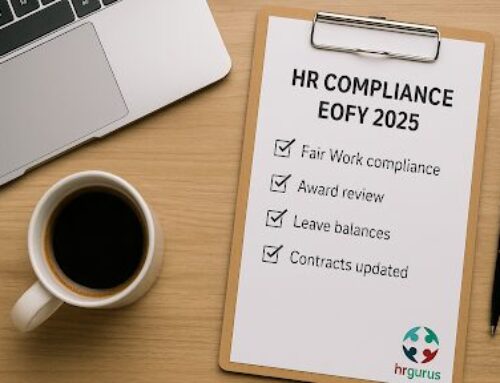A Look at the Real Impact on SMEs
The Secure Jobs, Better Pay legislation, introduced by the Australian government, has been one of the most significant industrial relations reforms in recent years. The law aimed to create a more secure working environment for employees, increase wage growth, and reduce workplace inequality. But the question for many small and medium-sized enterprises (SMEs) is: has it delivered on these promises, or has it created new challenges for business owners? In this blog, we’ll analyse the impact of Secure Jobs, Better Pay on SMEs and whether the reforms have achieved their intended outcomes.
What Were the Key Objectives of Secure Jobs, Better Pay?
At its core, the Secure Jobs, Better Pay Act sought to:
- Modernise workplace bargaining to boost wage growth and ensure fairer wages for vulnerable workers.
- Strengthen job security by making it harder for employers to terminate employees without valid reasons.
- Close the gender pay gap by promoting greater pay transparency and penalising companies with significant pay disparities.
- Improve flexibility for employees with family or caring responsibilities through better access to flexible work arrangements.
These goals were aimed at addressing long-standing issues in the Australian workplace, particularly around insecure employment, stagnant wage growth, and inequality. However, the actual implementation has had mixed results for SMEs, which often operate with fewer resources and leaner margins than larger corporations.
Positive Impacts of the Reforms
- Increased Employee Retention One of the more tangible benefits of Secure Jobs, Better Pay for SMEs has been an improvement in employee retention. By offering greater job security and fairer wages, many businesses have reported a reduction in turnover, particularly in industries that rely on casual or contract workers. The focus on secure employment has created more loyal and engaged workforces, which in turn reduces recruitment and training costs for businesses.
- Flexibility Arrangements The reforms also mandated greater access to flexible working arrangements, particularly for employees with caring responsibilities. For some SMEs, this has been a positive step, allowing them to offer more flexible work options, which can attract high-quality talent who may not have been available under stricter work arrangements.
- Gender Pay Equity Efforts to close the gender pay gap have had an impact, with many SMEs reviewing their pay structures to ensure compliance with the new laws. Although this can be seen as an administrative burden, businesses that have embraced these changes have found improved staff morale and a better public image as a result
Challenges Faced by SMEs
- Administrative and Compliance Burden One of the most cited challenges for SMEs under the Secure Jobs, Better Pay reforms is the increased administrative burden. The modernised bargaining process, while designed to drive wage growth, has been complex for smaller businesses to navigate. Multi-employer bargaining, in particular, has been challenging for SMEs with limited HR resources, as it requires ongoing negotiation with multiple parties and compliance with intricate legal frameworks.
This process can be time-consuming and expensive, especially for businesses that do not have in-house legal teams or IR experts.
- Cost Implications Another significant issue has been the cost implications of implementing wage increases and complying with job security measures. The reforms’ intention to drive wage growth is beneficial for employees but can put pressure on SMEs with tight profit margins. Businesses in sectors such as hospitality, retail, and aged care, where profit margins are traditionally slim, have found it difficult to balance higher wages with the need to remain competitive
Some SMEs have responded by reducing casual hours or limiting permanent hires, which in turn can impact business growth and flexibility.
- Job Security vs. Flexibility The reforms have also led to a tension between job security and business flexibility. While permanent employees benefit from greater job security, SMEs that rely on a flexible workforce (such as casual employees) have found it harder to manage fluctuating business demands. The new rules around casual employment conversion, which allow casual workers to request permanent positions after a set period, can reduce the flexibility that some businesses rely on during busy or quiet periods.
Has It Delivered?
The Secure Jobs, Better Pay reforms have delivered on some of their key objectives, particularly around job security, wage growth, and gender pay equity. Employees have benefited from more stable employment, and the reforms have forced businesses to take a closer look at how they manage wages and conditions, especially in terms of gender equality and flexible work arrangements.
However, the reality for SMEs is that the reforms have introduced significant challenges. For many smaller businesses, the increased administrative load and the pressure to raise wages without harming profitability have created a difficult balancing act. While larger corporations can absorb these changes more easily, SMEs have been forced to adapt quickly, often at considerable cost.
What’s Next?
As 2025 approaches, the Closing Loopholes Bill and further changes to the Right to Disconnect will continue to reshape the industrial relations landscape. SMEs must stay proactive by regularly reviewing their employment contracts, wage structures, and compliance with flexible work arrangements. While the Secure Jobs, Better Pay reforms have brought much-needed changes to Australia’s workforce, businesses will need to remain agile and informed to navigate the evolving IR landscape.
Become a member today
Navigating complex reforms doesn’t have to be overwhelming. With HR Gurus Membership Club, you’ll have a team of HR experts at your side. From wage structure reviews and bargaining processes to compliance with flexible work requests, we offer clear, tailored advice that keeps your business on track. Join the Membership Club today and take control of these changes with confidence. Let’s safeguard your business’s future and support your workforce every step of the way.
Written by Emily Jaksch
Continue Reading
Get a personal consultation.
Call us today at 1300 959 560.
Here in HR Gurus. We make HR simple because it should be.





